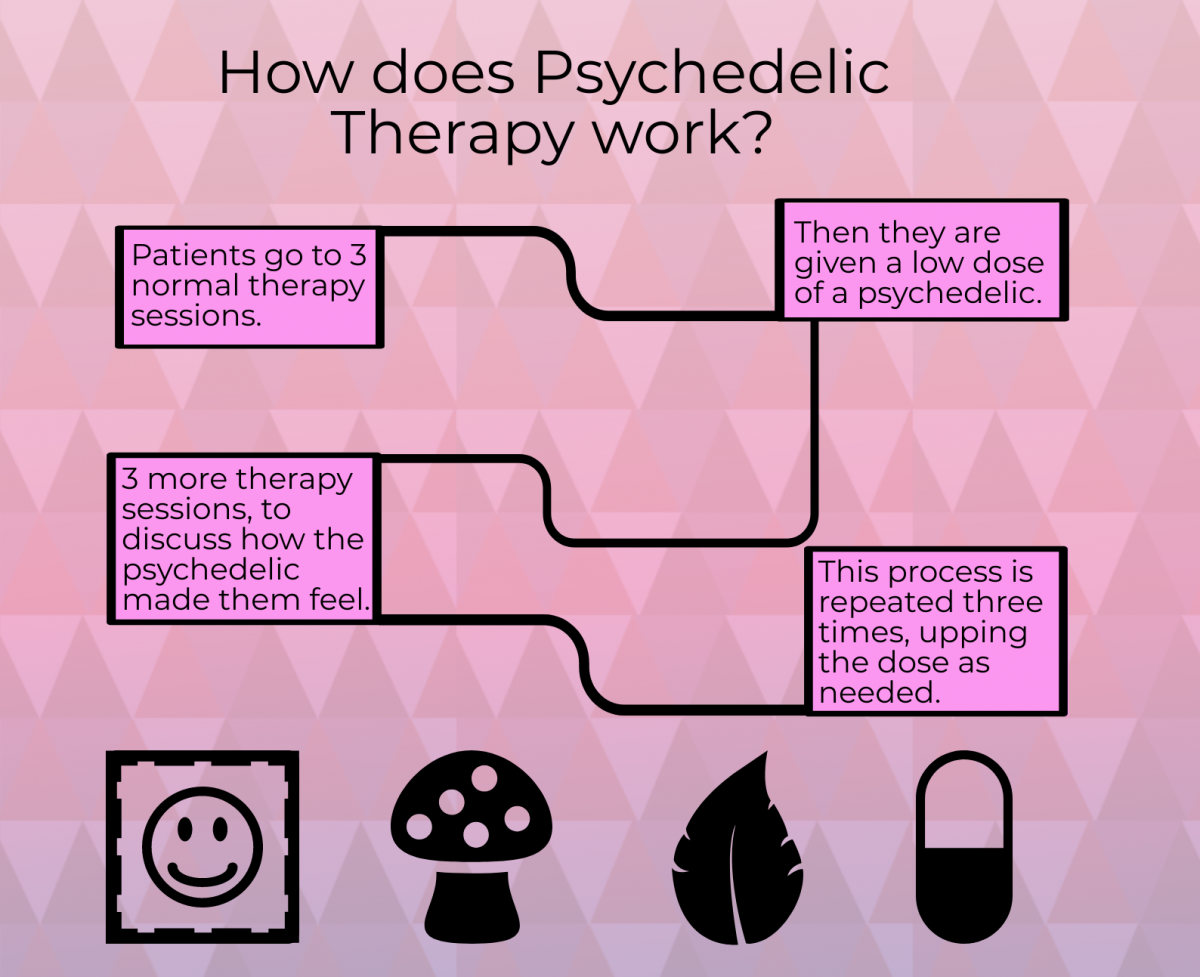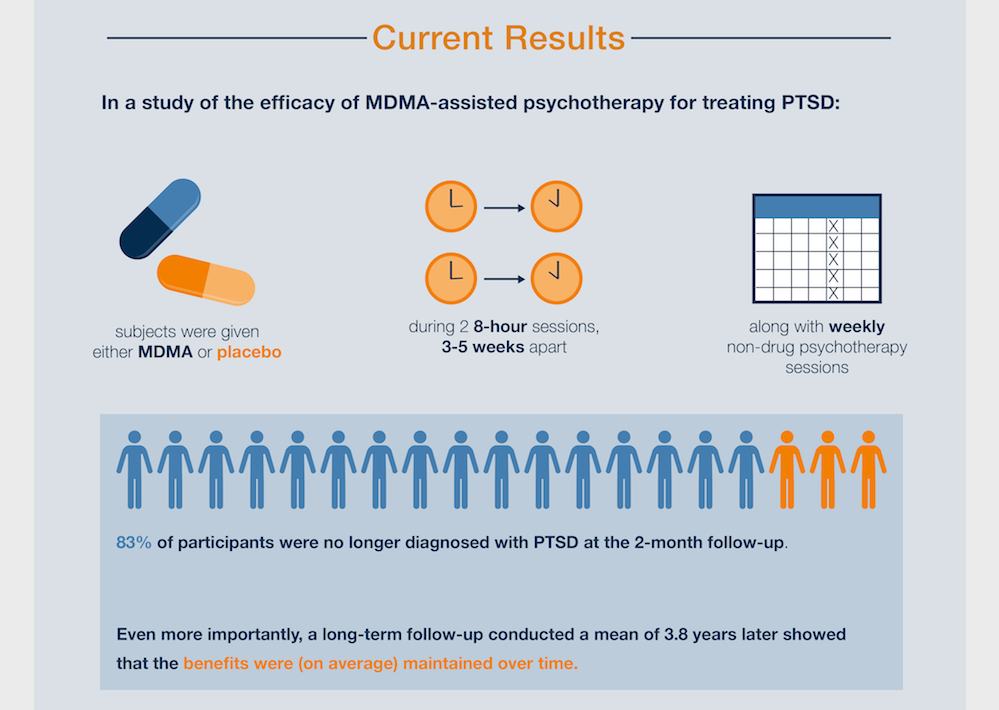Psychedelic drugs have had a colorful history. Now, psychedelics are being researched as a possible cure for a range of mental illnesses.
“Research is still early, but the promise of psychedelics could revolutionize the medical industry as we know it today,” said Rotem Petranker, the associate director of the University of Toronto’s Center for Psychedelic Studies. “For now, it appears that the lowest hanging fruit are mental health disorders such as depression and anxiety,” he said.
Psychedelic therapy is a new medical practice where a psychiatrist gives the patient a psychedelic drug in a monitored space. This is done in extended therapy sessions, and only needs to be done once every few weeks or months. Most treatment options right now require patients to take medications daily or as needed.
Fossil data shows that psychedelics were in ceremonies by human cultures across the world for 10,000 years. There is also written record of people using them for the last 5,000 years. In the 20th century, psychedelic drugs have been closely tied to the culture of the 1960s and the hippie movement.

The most common drug being studied at the moment is psilocybin, the active chemical in magic mushrooms. MDMA, more commonly known as ecstasy, is also frequently studied. Both LSD and ayahuasca, a psychedelic tea from the Amazon basin, are also being studied.
“Psychedelics currently show a promise in various fields including mental health, but their anti-inflammatory potential can be used for a variety of conditions,” said Petranker.
A study done by the Beckley Foundation examined patients who were given psilocybin in a clinical setting. One week later, 67 per cent of patients were free of depression. After three months, 42 per cent of patients were depression free.

Mental heal issues are a serious problem for many Canadians. According to the Center for Addiction and Mental Health (CAMH), one in five people will have some sort of mental illness by the age of forty. About 4,000 Canadians of all ages commit suicide every year. Twenty-three percent of those suicides were young adults, aged 20-24.
Studies show that traditional anti-depressants are not always reliable for treating mental illness. Antidepressants only improve symptoms in about twenty per cent of people and prevent a relapse of depression in twenty-seven per cent of people.
Micro-dosing is the practice of ingesting 1/10 of the lowest recreational dose of a psychedelic to get a performance enhancing effect. This trend began in Silicon Valley in the early 2000s. It is so new that there is little data to show that it actually has an effect. However, users report that it helps them focus in the way that a cup of coffee or ADHD medication would. The Beckley Foundation is currently recruiting for a clinical trial to determine the effects of micro-dosing.
Despite advancements, patients won’t be able to access legal psychedelic therapy for some time. According to Petranker, it will probably be about ten years before psychedelic therapy becomes a common treatment option.

